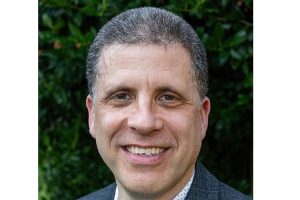
Abstract: An ideal clock combines a self-sustained oscillator with a fixed period and a counter. Sustained oscillations are achieved by driving a resonant device through a primary feedback loop that provides energy to counter dissipation. In the presence of noise, the lack of dynamic rigidity along the corresponding limit cycle results in phase diffusion and frequency fluctuations that limit the device’s use for precise timekeeping. In this talk, I present a new control framework that adds a secondary feedback loop with adaptive, slowly varying amplitude and phase to the model of a micromechanical oscillator to reduce or even eliminate phase diffusion, at least to dominant order. The results may pave the way toward a class of next-generation oscillators that exhibit extraordinary frequency stability.
Bio: Since January 2024, Dr. Harry Dankowicz is Professor of Mechanical Engineering in the A. James Clark School of Engineering at the University of Maryland, College Park. He graduated from KTH Royal Institute of Technology in Stockholm, Sweden, with an M.Sc. in Engineering Physics in 1991 and, subsequently, from Cornell University with a Ph.D. in Theoretical and Applied Mechanics in 1995. Following a post-doctoral and research associate appointment at KTH between 1995 and 1999, Dankowicz joined the Department of Engineering Science and Mechanics at Virginia Polytechnic Institute and State University, where he remained until 2005 when he became a faculty member in the Department of Mechanical Science and Engineering at the University of Illinois at Urbana-Champaign. Between 2016 and 2021, Dankowicz served as Associate Dean for Graduate, Professional and Online Programs in The Grainger College of Engineering. Starting in May 2021 and through December 2023, he served as Program Director for the Dynamics, Control and System Diagnostics Program in the Division of Civil, Mechanical, and Manufacturing Innovation at the National Science Foundation. Dankowicz is a Fellow of the ASME and a recipient of a PECASE award from the US National Science Foundation and the Fred Merryfield Design Award and Archie Higdon Distinguished Educator Award from the ASEE. He conducts dynamical systems research at the intersection of engineering, math and physics. This work involves studying a wide range of complex systems that are governed by differential equations and learning the behavior of those systems through theory and experiments. His research efforts further seek to make original and substantial contributions to the development and design of existing or novel devices or methodologies that capitalize on system nonlinearities for improved system understanding and performance. He is the lead developer of the Matlab-based COCO package for bifurcation analysis and design optimization and author of textbooks on multibody mechanics and visualization, chaotic dynamics in Hamiltonian systems, and parameter continuation techniques.
Host: Joseph Moore